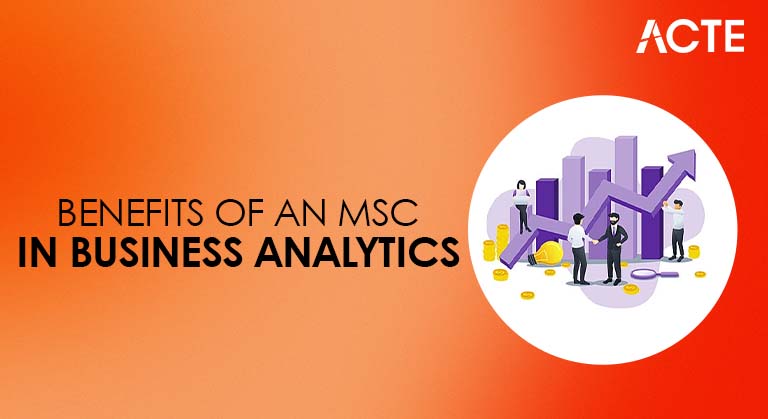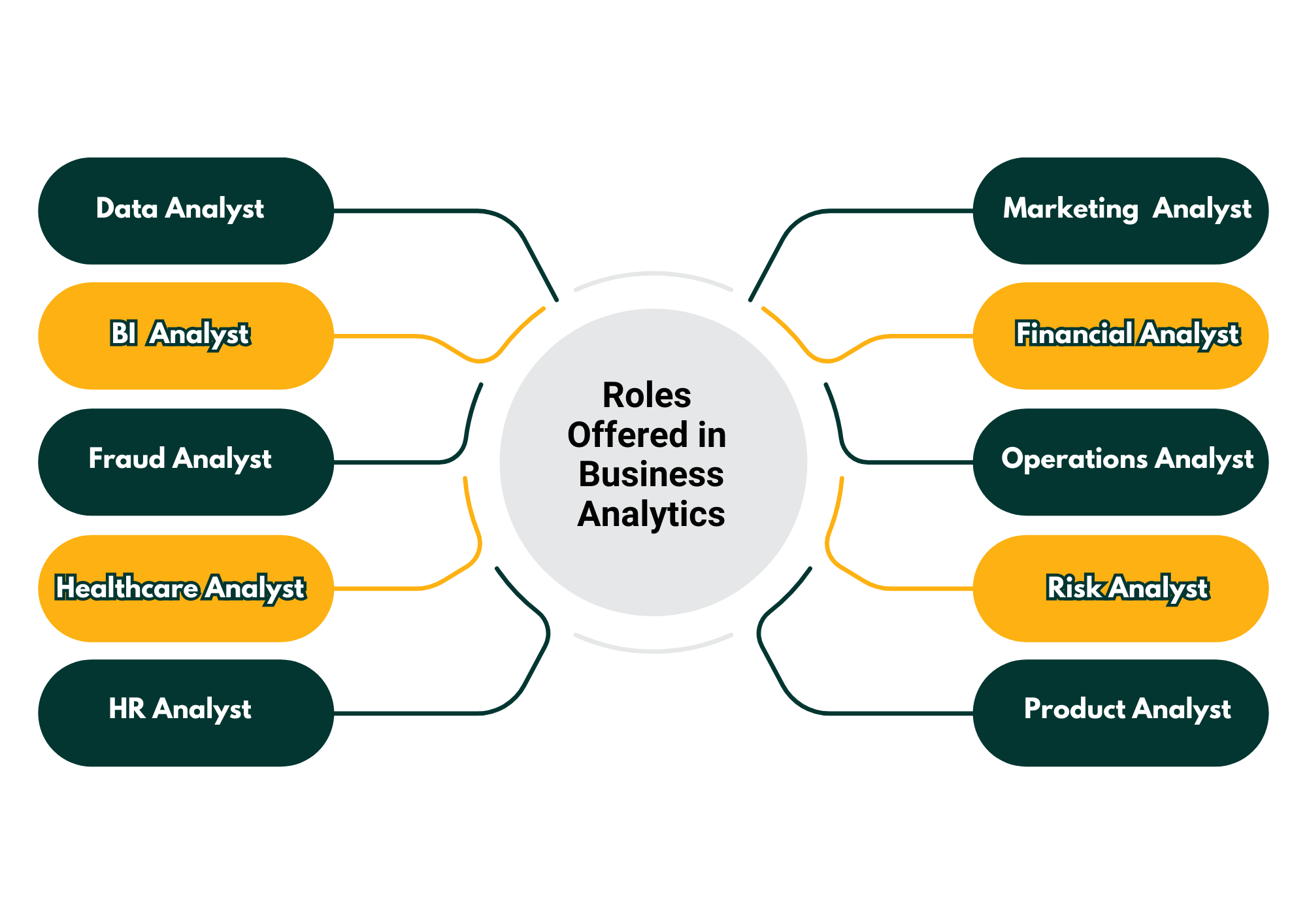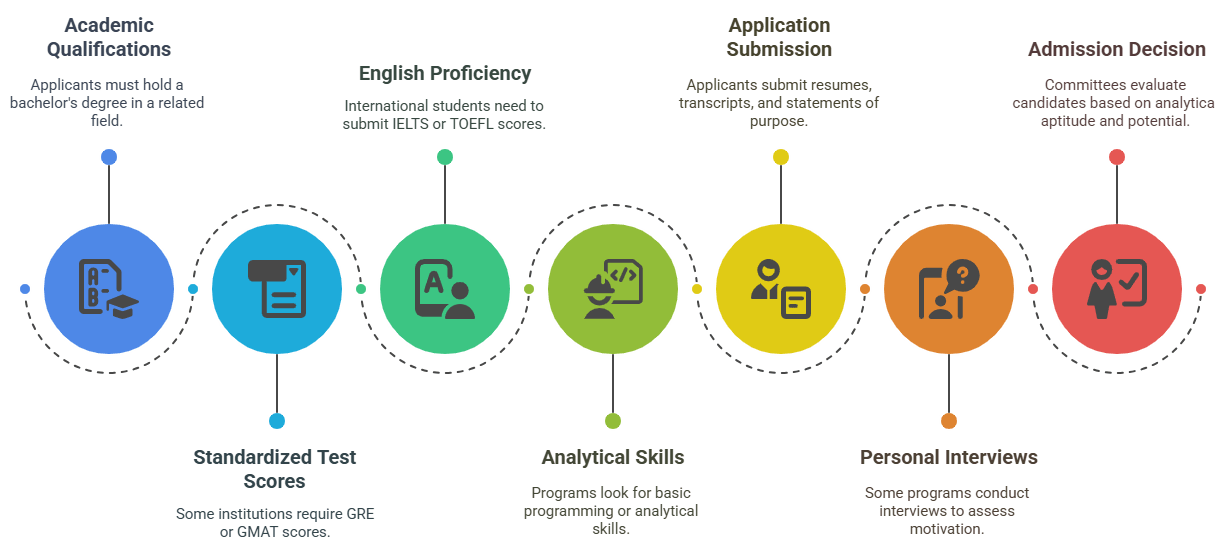
- Introduction to Business Analytics
- What is an MSc in Business Analytics
- Core Subjects and Syllabus Overview
- Key Skills Acquired
- Admission Criteria
- Top Universities Offering MSc Business Analytics
- Career Opportunities Post-Graduation
- Business Analytics vs Data Science
Introduction to Business Analytics
Business analytics is the systematic process of exploring and analyzing data to make informed business decisions and enhance organizational performance. It leverages statistical methods, data mining, and predictive modeling to identify patterns, trends, and insights that support strategic planning and operational efficiency. In an era defined by big data and digital transformation, business analytics is vital for understanding customer behavior, optimizing internal processes, mitigating risks, and gaining a competitive advantage. The discipline is typically categorized into four types: descriptive analytics, which summarizes historical data; diagnostic analytics, which investigates causes of outcomes; predictive analytics, which forecasts future events; and prescriptive analytics, which suggests actionable strategies. With advancements in technology and analytics tools, businesses can now access real-time data insights, enabling more agile and evidence-based decision-making a skillset often emphasized in PMP Training programs to enhance project management effectiveness. Professionals in this field blend business knowledge with technical expertise in data management, visualization, and statistical analysis to translate raw data into valuable insights. An introduction to business analytics equips learners with the foundational skills and knowledge necessary to apply analytical thinking in diverse industries such as finance, healthcare, marketing, and supply chain management, ultimately driving better outcomes and sustained business growth.
To Explore PMP in Depth, Check Out Our Comprehensive PMP Certification Training To Gain Insights From Our Experts!
What is an MSc in Business Analytics
- Data-Driven Decision Making: Students learn to apply data analytics tools to solve real-world business problems and support strategic decision-making.
- Comprehensive Curriculum: The program typically covers topics such as statistics, machine learning, data visualization, business intelligence, and predictive modeling foundational knowledge that can also support understanding broader organizational functions, including what is Human Resource Management and how data informs workforce strategies.
- Hands-On Learning: Most programs include practical projects, case studies, and the use of tools like Python, R, SQL, and Tableau to provide real-world experience.
An MSc in Business Analytics is a postgraduate degree program designed to equip students with the technical skills and business knowledge needed to analyze data and make strategic business decisions. It combines elements of data science, statistics, and management, preparing graduates for roles where they can turn complex data into actionable insights. This program is ideal for individuals looking to build a career at the intersection of data analysis and business strategy.

- Interdisciplinary Approach: It bridges business and technology, helping students understand both technical methods and their business applications.
- Career Opportunities: Graduates can pursue roles such as business analyst, data analyst, data scientist, or analytics consultant across various industries.
- Global Demand: With businesses increasingly relying on data, the demand for professionals with advanced analytics skills continues to grow worldwide.
Core Subjects and Syllabus Overview
The MSc in Business Analytics curriculum is designed to provide a strong foundation in both technical analytics skills and strategic business knowledge. Core subjects typically include Data Analytics, Statistical Methods, Machine Learning, Data Visualization, and Database Management, equipping students with the tools needed to process and interpret large datasets. Business Intelligence and Predictive Analytics help students identify trends and forecast outcomes to support data-driven decisions skills that are essential when exploring concepts like What is a Business Model and how data influences strategic planning. Courses in Operations Analytics, Marketing Analytics, and Financial Analytics demonstrate how data is applied across various business functions. Programming for Analytics, often using languages like Python, R, or SQL, is also a central component, allowing students to build and automate analytical models. Big Data Technologies and Cloud Computing may be introduced to help students handle large-scale data environments. Additionally, subjects like Ethics in Data Analytics and Decision Modeling ensure students understand responsible data use and effective decision-making frameworks. The syllabus often includes practical case studies, industry projects, and internships to bridge classroom learning with real-world application. This comprehensive coverage ensures that graduates are not only proficient in technical tools but also capable of aligning analytics strategies with business goals, making them valuable assets in any data-driven organization.
Are You Preparing for PMP Jobs? Check Out ACTE’s Project Management Interview Questions & Answer to Boost Your Preparation!
Key Skills Acquired
- Data Analysis and Interpretation: Ability to collect, clean, and analyze large datasets to uncover patterns and trends that inform business strategies.
- Statistical and Mathematical Modeling: Proficiency in applying statistical techniques and mathematical models to make accurate predictions and support data-driven decisions is also crucial for understanding the scope of Management Accounting, where analytical insights drive strategic financial planning.
- Programming and Technical Proficiency: Skills in languages and tools such as Python, R, SQL, Excel, and Tableau for data manipulation, visualization, and automation.
An MSc in Business Analytics equips students with a blend of technical expertise, analytical thinking, and business acumen. Throughout the program, students gain practical experience in handling data, solving complex problems, and delivering actionable insights that drive strategic decisions. These skills are essential for thriving in roles across various data-driven industries.
- Problem-Solving and Critical Thinking: Capability to approach business challenges logically, assess various solutions, and recommend data-supported actions.
- Business and Domain Knowledge: Understanding of how analytics applies across functions like marketing, finance, operations, and supply chain management.
- Communication and Data Storytelling: Expertise in presenting complex data insights in a clear, compelling manner to stakeholders through reports, dashboards, and presentations.
- MIT Sloan School of Management (USA): Offers a Master of Business Analytics program focused on data science, optimization, and machine learning, with strong ties to industry leaders.
- London Business School (UK): Provides a comprehensive analytics program combining technical and business modules, with opportunities for real-world consulting projects designed to improve project outcomes using PRINCE2 methodologies and best practices.
- University of Texas at Austin McCombs School of Business (USA): Known for its hands-on approach and strong industry connections, particularly in tech and consulting sectors.
- HEC Paris (France): Offers a globally recognized MSc in Data Science for Business, delivered in collaboration with École Polytechnique.
- National University of Singapore (NUS): Features a robust analytics curriculum tailored to the Asian market, with strong regional business links.
- Imperial College Business School (UK): Combines analytics, machine learning, and strategic decision-making, supported by excellent career services and employer engagement.
Admission Criteria
Admission to an MSc in Business Analytics program typically requires a combination of academic qualifications, relevant skills, and professional potential. Most universities require applicants to hold a bachelor’s degree in a related field such as business, economics, engineering, mathematics, computer science, or statistics. A strong academic record, particularly in quantitative subjects, is often preferred. Some institutions may also require standardized test scores like the GRE or GMAT, though this can vary depending on the program. Proficiency in English is essential, and international students are usually required to submit scores from English language tests such as IELTS or TOEFL especially when enrolling in globally recognized programs like PMP Training, where strong communication skills are critical. In addition to academic credentials, many programs look for candidates with basic programming or analytical skills and may prefer applicants who have relevant work experience or internships. The application process usually involves submitting a resume, academic transcripts, a statement of purpose outlining career goals and reasons for pursuing the degree, and letters of recommendation. Some programs may also conduct personal interviews to assess the applicant’s motivation and fit for the course. Overall, admission committees seek candidates who demonstrate strong analytical aptitude, a keen interest in data-driven decision-making, and the potential to succeed in a dynamic and technology-driven business environment.

Top Universities Offering MSc Business Analytics
With the rising demand for data-driven decision-making, many top universities around the world offer specialized MSc Business Analytics programs designed to equip students with cutting-edge analytical and business skills. These institutions are known for their strong academic curriculum, industry partnerships, and high graduate employability. Here are six top universities renowned for their MSc in Business Analytics programs:
Are You Considering Pursuing a Master’s Degree in PMP? Enroll in the PMP Masters Program Training Course Today!
Career Opportunities Post-Graduation
Graduates of an MSc in Business Analytics are highly sought after across industries due to their ability to transform data into actionable insights that drive strategic decision-making. The program opens doors to a wide range of dynamic and rewarding career paths in sectors such as finance, consulting, healthcare, e-commerce, technology, retail, and logistics. Common roles include Business Analyst, Data Analyst, Data Scientist, Analytics Consultant, Operations Analyst, and Marketing Analyst. These positions involve tasks such as interpreting data trends, optimizing business processes, building predictive models, and advising on data-driven strategies. With the growing importance of big data and artificial intelligence, graduates may also explore roles in Machine Learning or AI Strategy, contributing to the development and deployment of intelligent business system while also gaining insight into broader organizational functions such as what is Human Resource Management and how technology impacts workforce planning. Many organizations, from multinational corporations to startups, actively seek analytics professionals to improve efficiency, customer experience, and profitability. Additionally, the strong technical foundation provided by the degree allows graduates to pursue roles in data engineering or product analytics. For those interested in further academic or research pursuits, the MSc also serves as a solid stepping stone to a PhD or specialized certifications. Overall, the degree offers excellent career flexibility, high employability, and significant growth potential in the data-driven global economy.
Are You Interested in Learning More About PMP? Sign Up For Our PMP Certification Training Today!
Business Analytics vs Data Science
Business Analytics and Data Science are closely related fields, but they differ in focus, tools, and objectives. Business Analytics primarily emphasizes using data to solve specific business problems, improve decision-making, and enhance organizational performance. It involves analyzing historical data using tools like Excel, SQL, Tableau, and statistical methods to generate actionable insights for business strategy. Business analysts often work closely with decision-makers to interpret data in a business context and recommend solutions. In contrast, Data Science is broader and more technical, focusing on extracting knowledge and building predictive or prescriptive models using large, complex datasets skills that can complement the strategic planning and execution principles taught in PMP Training. It relies heavily on advanced programming (e.g., Python, R), machine learning, artificial intelligence, and big data technologies. Data scientists not only interpret data but also build algorithms and models that can automate processes or make data-driven predictions. While Business Analytics is generally more applied and business-oriented, Data Science is more research-intensive and computational. However, both fields overlap significantly, and professionals in each often use similar tools and techniques. The choice between the two depends on one’s career goals. Those interested in strategic business roles may lean toward Business Analytics, while those inclined toward technical innovation and model development may pursue Data Science.

